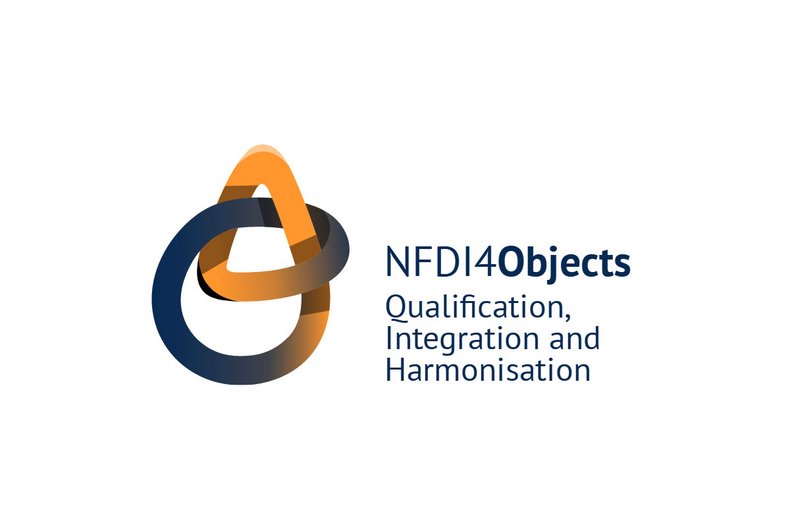Knowledge repository for the cultural heritage of humankind
The new consortium NFDI4Objects. Research Data Infrastructure for the Material Remains of Human History began its work on March 1, 2023. Under the leadership of the German Archaeological Institute (DAI), the consortium will advance the digital transformation in archaeology and classical and ancient studies, and develop internationally networked services. Mainz University of Applied Sciences is the only university of applied sciences among the ranks of the co-applicant institutions.
“By using digital technologies to research cultural heritage, Mainz University of Applied Sciences has been building an interdisciplinary research area for years that is unique for a university of applied sciences in Germany and that fits well with the university’s regional orientation through close cooperation with practical partners such as the Leibniz Center for Archaeology and the Landesmuseum Mainz,” says university president Prof. Dr. Susanne Weissman, emphasizing the university’s relevance within the consortium.
Largest initiative alliance of related disciplines and institutions in German archaeology
The NFDI4Objects consortium forms a broad community dealing with the material heritage of humankind from a period of more than 2.6 million years. It includes numerous disciplines from the humanities and natural sciences and many different institutions such as universities and colleges, non-university research institutions, historical preservation offices, museums, and associations that are connected by common requirements for research data management (FDM). As such, the consortium represents the entire content, geographic, and temporal spectrum of the archaeological and classical and ancient studies research community. According to the German Archaeological Institute, such a large initiative of related disciplines and institutions has never existed in German archaeology.
Regional heritage research will benefit from connection to digital world heritage site
As a strong national alliance that is internationally connected, NFDI4Objects also aims to enable regional heritage research to connect to the world’s digital heritage. “The numerous and diverse local museums and initiatives, which rarely have the resources and knowledge to digitize and provide access to their collections, will benefit from NFDI,” states Prof. Dr. Kai-Christian Bruhn, who works for the Department of Geoinformatics and Surveying at the School of Engineering at Mainz University of Applied Sciences and has played a leading role in the development of the NFDI4Objects application from the beginning.
Consortium of the Humanities and Cultural Studies deeply anchored in Mainz
With NFDI4Objects, a third NFDI consortium representing the humanities and cultural studies is also deeply anchored in Mainz thanks to the General Directorate for Cultural Heritage and the Leibniz Center for Archaeology (LEIZA). Together with the NFDI4Memory consortium, which was also included in the funding and is led by the Leibniz Institute for European History in Mainz, NFDI4Objects expands on the NFDI4Culture initiative already launched two years ago at the Academy of Sciences and Literature. All of this is also due to the close networking of the institutions in mainzed, the Mainz Center for Digitality in the Humanities and Cultural Studies, which, as a regional network, is able to support the coordination of the work in the consortium. “These successes make Mainz a national hub for the management of research data in the humanities and cultural studies,” summarizes Prof. Dr. Kai-Christian Bruhn.
Prof. Dr. Anett Mehler-Bicher, Vice President for Research and Transfer at Mainz University of Applied Sciences, also stresses “that research data, as an essential foundation of academic work, must be documented using uniform standards. The traceability of the creation process of the research data achieved in this way ensures its quality and opens up follow-up possibilities for further research. With this aim, the project FDM@HAW.rlp supports the development of research data management at eight universities of applied sciences in Rhineland-Palatinate and enables interconnectivity with the activities of the national research data infrastructure.”
Mainz University of Applied Sciences contributes to approval outcome with research work of i3mainz
As a co-applicant in the consortium, Mainz University of Applied Sciences is responsible for qualification and community work, thus developing the foundations for the broad teaching of data management proficiency. The expertise for this is based on the research work of the past decades at i3mainz, the Institute for Spatial Information and Surveying Technology, which is celebrating its 25th anniversary this year. “With the experience we have gained at i3mainz both in the field of spatial data infrastructures and in the processing and analysis of data from archaeology, we were able to contribute significantly to the success of the grant. As a university that researches and teaches in close proximity to applications, we also have the necessary tools to carry out our tasks in the consortium,” explains Prof. Dr. Kai-Christian Bruhn.
For many years, Mainz University of Applied Sciences was home to the Competence Center for Spatial Data in the Humanities at i3mainz, which was funded by the state of Rhineland-Palatinate. There, research and development in archaeological and other classical and ancient studies projects was conducted in close cooperation with numerous institutions in Germany and abroad, including, above all, LEIZA. Many activities were also developed in the region, such as the cooperation with the Landesmuseum Mainz and the support in the preparation of the UNESCO World Heritage application SchUM Sites Speyer, Worms and Mainz. The development of the inter-university master’s degree program Digital Methodology in the Humanities and Cultural Studies is closely linked to this research focus, which is why the development of the qualification opportunities in the new consortium is also based in Mainz.
Mainz University of Applied Sciences one of only a few participating universities of applied sciences
Together with seven other consortia in the third and final round of applications, NFDI4Objects was included in the federal-state funding for the National Research Data Infrastructure (NFDI) starting in March. In total, the funding includes 27 NFDI consortia, which were launched in October 2020, October 2021, and March 2023. The German Research Foundation (DFG) is responsible for the selection, evaluation, and administration of the consortia. Mainz University of Applied Sciences, in its role as co-applicant, is one of the very few universities of applied sciences within these consortia, making it an absolute exception among the various institutions.




